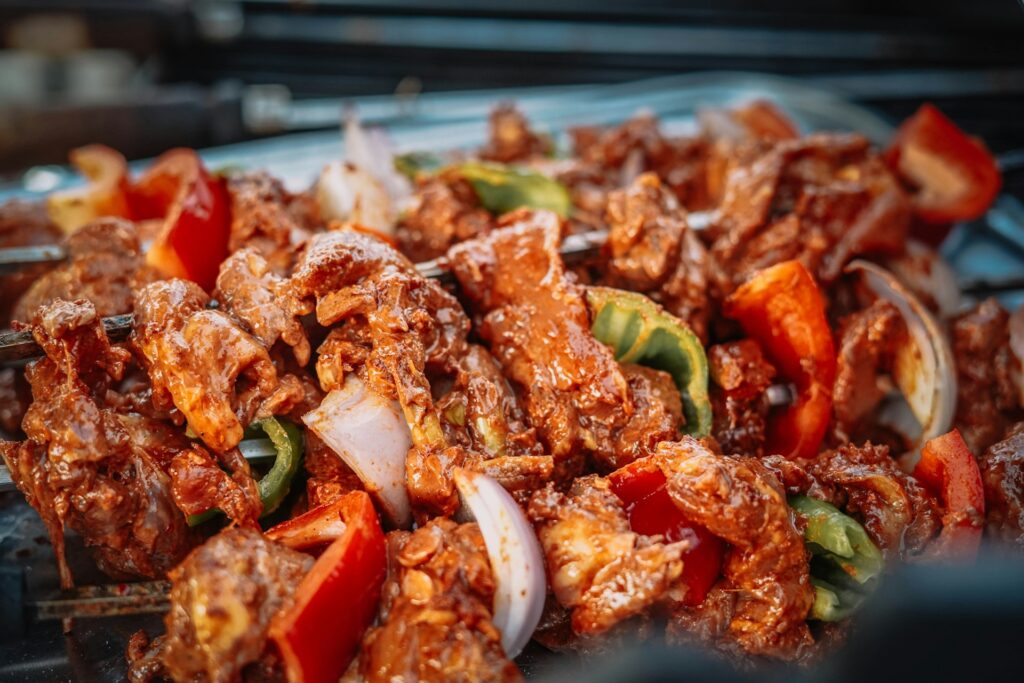Introduction: In the realm of pet nutrition, can dogs eat pork rinds dog owners often find themselves questioning the safety and appropriateness of various human foods for their furry companions. One such query revolves around pork rinds. Can dogs indulge in this crispy snack without any adverse effects? Let’s delve into the topic to understand the implications.
What Are Pork Rinds?
Pork rinds, also known as chicharrones, cracklings, or pork skins, are a popular snack made from fried or roasted pig skin. They are often seasoned and enjoyed for their crunchy texture and savory flavor.
Relevance and Importance
Understanding whether dogs can eat pork rinds is crucial for responsible pet ownership. While certain human foods are safe for canine consumption, others can pose risks to their health. Determining the suitability of pork rinds for dogs helps ensure their well-being and prevents potential health issues.
Types and Categories
Pork rinds come in various types, including plain, seasoned, and flavored varieties. Some may contain additional ingredients like salt, spices, or artificial additives.
Symptoms and Signs
Safe Consumption Symptoms
- Dogs may enjoy pork rinds without exhibiting any immediate adverse effects.
- Some dogs may tolerate small amounts of pork rinds without displaying symptoms of distress.
Unsafe Consumption Symptoms
- Consumption of pork rinds by dogs can lead to gastrointestinal upset.
- Symptoms may include vomiting, diarrhea, or abdominal discomfort.
- High-fat content in pork rinds can potentially cause pancreatitis in dogs.
Causes and Risk Factors
High Fat Content
Pork rinds are rich in fat, which can be difficult for dogs to digest. Excessive fat consumption can lead to gastrointestinal issues and even pancreatitis.
Seasonings and Additives
Certain seasonings and additives used in pork rinds, such as salt or spices, may be harmful to dogs in large quantities.
Diagnosis and Tests
If a dog exhibits symptoms of gastrointestinal distress after consuming pork rinds, a veterinarian may perform diagnostic tests such as blood work or imaging to assess the extent of the issue.
Treatment Options
Veterinary Care
- If a dog experiences gastrointestinal upset after consuming pork rinds, prompt veterinary care is essential.
- Treatment may involve symptomatic relief, such as medications to alleviate vomiting or diarrhea.
Hydration and Rest
- Ensuring adequate hydration and allowing the dog to rest can aid in recovery from gastrointestinal issues.
Preventive Measures
To prevent potential health risks associated with pork rinds consumption, dog owners should:
Avoid Feeding Pork Rinds
- Refrain from offering pork rinds to dogs, especially in large quantities or as a regular part of their diet.
Provide Suitable Alternatives
- Offer dog-friendly treats and snacks that are specifically formulated for canine consumption.
Personal Stories or Case Studies
Case Study 1: Max’s Experience
Max, a Labrador retriever, experienced vomiting and diarrhea after consuming a few pieces of pork rinds. His owner rushed him to the vet, where he received treatment for gastrointestinal upset. Max recovered fully but learned to avoid pork rinds in the future.
Case Study 2: Bella’s Tale
Bella, a small breed dog, accidentally ingested a large portion of seasoned pork rinds. She developed severe pancreatitis, requiring intensive veterinary care. Bella’s case underscores the importance of preventing dogs from accessing potentially harmful foods.
Expert Insights
According to Dr. Emily Johnson, a veterinarian specializing in canine nutrition, “While pork rinds may seem harmless, they can pose significant health risks to dogs, especially due to their high-fat content. It’s best to avoid feeding them to your furry friends altogether.”
Conclusion
In conclusion, while dogs may be tempted by the aroma and crunch of pork rinds, it’s crucial for their owners to exercise caution. The high-fat content and potential additives make pork rinds an unsuitable snack for canine consumption. Prioritizing their health and well-being entails avoiding foods that may pose risks, including pork rinds.

